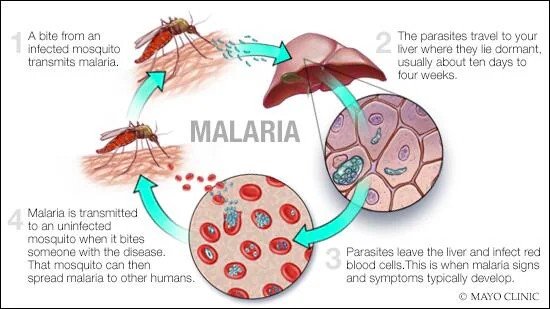World Malaria Day: Uniting for a Malaria-Free Future

World Malaria Day
An occasion to highlight the need for continued investment and sustained political commitment for its prevention and control.
The theme for this year’s Malaria Day is “Malaria Ends With Us: Reinvest, Reimagine, Reignite‘
LEARNING FROM HOME/ WITHOUT CLASSES/ BASICS
The disease is a life-threatening disease caused by parasites. It transmitted to people through the bites of infected female Anopheles mosquitoes.
It caused by Plasmodium parasites. The disease is an acute febrile illness.The parasites spread to people through the bites of infected female Anopheles mosquitoes, called “malaria vectors.” There are 5 parasite species that cause this disease in humans. 2 of these species – P. falciparum and P. vivax – pose the greatest threat.
Falciparum is the most prevalent parasite on the African continent. It is responsible for most related deaths globally.
Vivax is the dominant parasite in most countries outside of sub-Saharan Africa.
The WHO 2017 Report revealed that India is one of 15 countries in the world with the highest cases and deaths from the disease. The report ranked India, along with 14 countries from the Sub Saharan African region, with 80 percent of the world’s cases and deaths.
Nigeria bore the highest burden in the world, as it topped these 15 countries with 30 percent of the deaths. Four African countries accounted for just over half of all malaria deaths worldwide. Nigeria (31.9%), the Democratic Republic of the Congo (13.2%), United Republic of Tanzania (4.1%) and Mozambique (3.8%).
India’s health ministry has projected that India will be malaria-free by 2030. The health ministry has announced plans to ensure “zero indigenous cases and deaths due to this disease for 3 years. In order to gain the malaria-free status by 2030. the Health Ministry in July, 2017 launched National Strategic Plan for Malaria Elimination (2017-22). It laid down strategies for the next five years.
As per the World Health Organization (WHO) the Report 2021, India was the only high burden country to record progress by sustaining a reduction in malaria burden between 2019 and 2020. However, the rate of decline was slower than before the pandemic, the WHO report stated. India still sharing over 80 per cent of the malaria burden of South-East Asia.







0 Comments